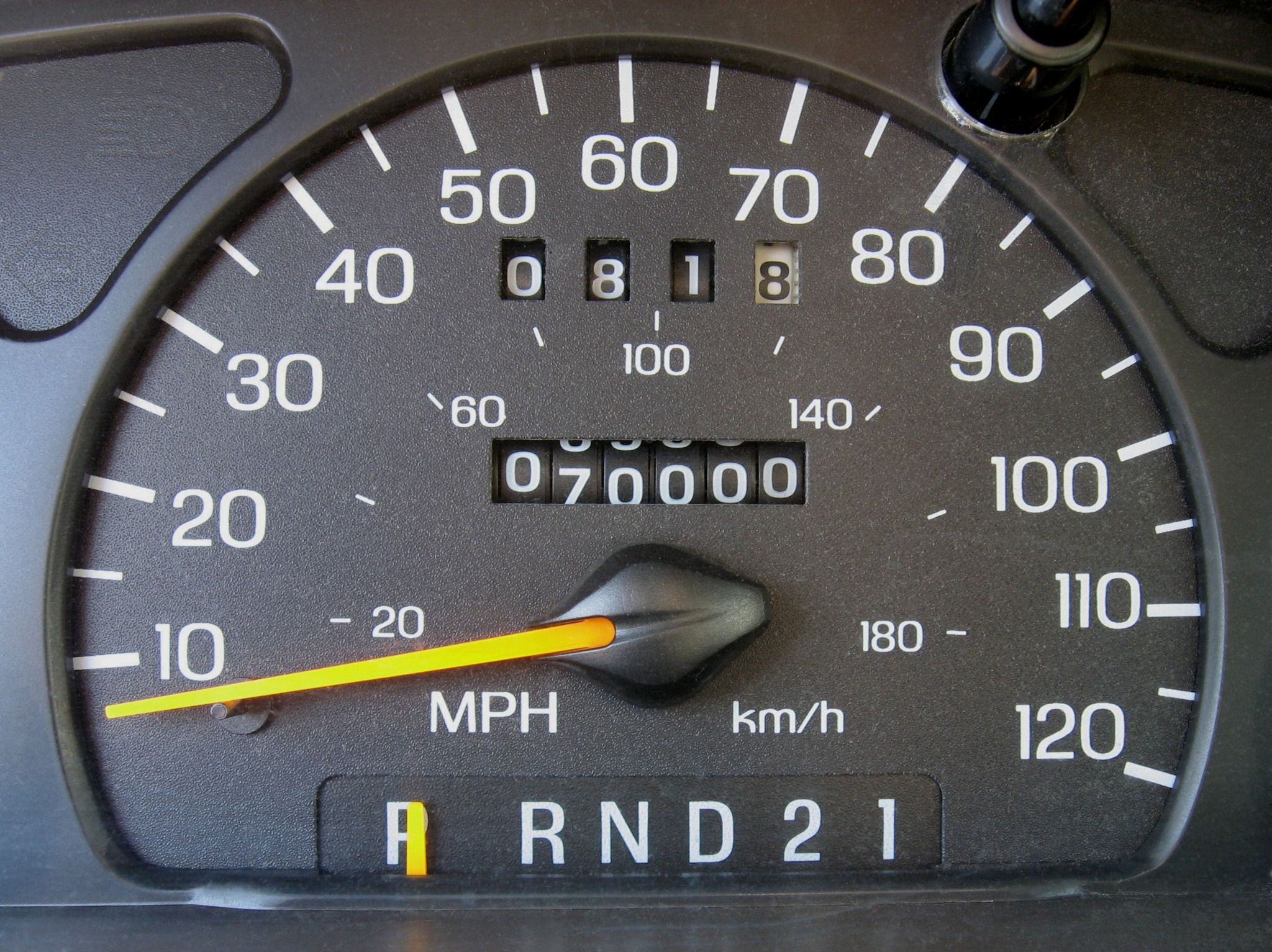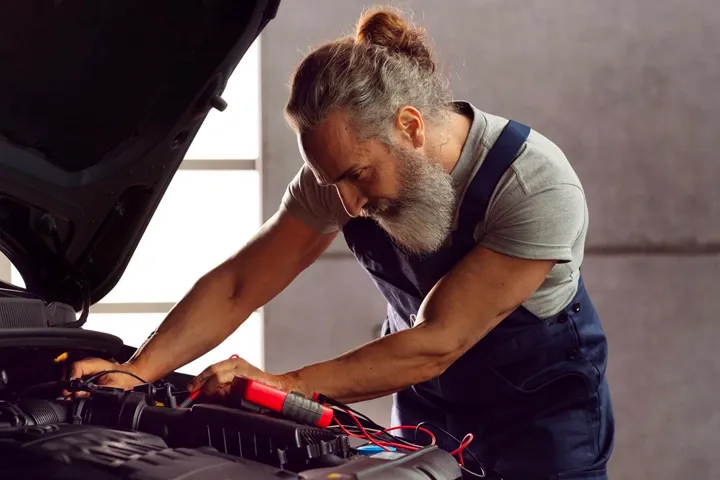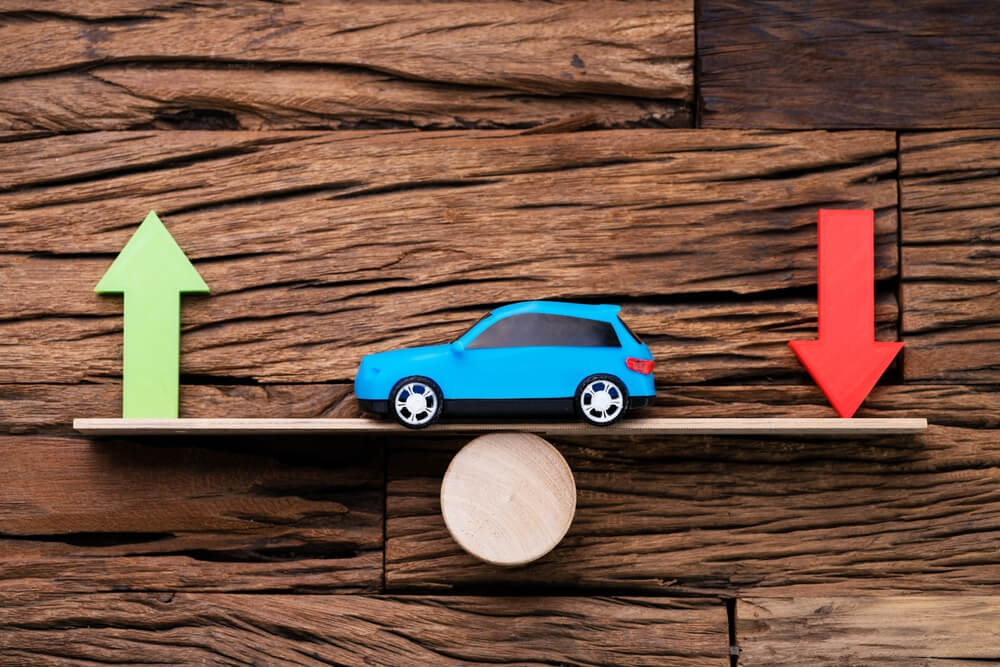While the general rule of thumb is that a car depreciates (reduces in value) over time, there are indeed some circumstances where a car’s value can defy expectations and even appreciate.
So, let’s dive into some of those. What are the factors that contribute to a potential increase in car value? Your car could be worth more than you think!
- Understanding car depreciation
- Factors that impact car value
- Things to consider for increasing value
- Timing and market conditions
- Expert appraisals and documentation
Understanding car depreciation
What's the deal with car depreciation? Well, it's basically the fancy term for how your car loses value over time. As you drive your car and it goes through the daily wear and tear, its value naturally goes down. It's like that favourite shirt you've worn a million times and starts to show its age. But what causes this depreciation? Let's break it down:
Age
As your car gets older, it's no surprise that its value goes down. Car companies are constantly rolling out shiny new models with all the latest bells and whistles, making your older car seem outdated. The biggest hit in value happens as soon as you drive it off the lot, and the depreciation rate tends to be steeper in the early years.
Mileage
The number of miles on your car's odometer plays a big role in its depreciation. The more miles you put on it, the more wear and tear it experiences, which means a lower value. Buyers prefer cars with lower mileage because they're seen as having more life left in them and fewer potential issues down the road.
Condition
It's not just about how old or how far your car has gone—it's also about how well you've taken care of it. A well-maintained car that's had regular servicing and is in good condition will hold its value better than one that's been neglected. Think of it like comparing a sparkling clean car to one with dents, scratches, and mechanical problems. The better the condition, the higher the value.
So, understanding car depreciation is important because it helps you grasp why your car's worth less than when you first bought it. By knowing the factors that contribute to depreciation, you can make smarter decisions about when to sell and how to maintain your car to get the most out of its resale value.


Factors that impact your car’s value
If you’re hoping to sell your car and are wondering whether your car’s value will go up or not, there are some important things to consider.
Rarity and collectibility
Certain cars appreciate drastically over time due to limited availability and desirability among enthusiasts, becoming sought-after treasures that capture the attention of collectors and skyrocketing their value. Classic Mercedes, Porsche, and BMW models have seen incredible value increases over the years due to their exclusivity, so if you happen to own a rare or collectible car, then you will likely enjoy a rise in value.
Condition and maintenance
Well-maintained cars can retain or even increase their value. Regular upkeep such as scheduled servicing and timely repairs demonstrates to potential buyers that your car has been taken care of properly. Consider these tips to maintain good upkeep of your car:
- Routine maintenance - Regular oil changes, fluid checks, and tyre rotations are important ways to preserve your car’s performance and longevity.
- Address cosmetic imperfections - Repair minor dents, scratches, and paint chips to improve your car’s overall appearance and appeal.
- Document maintenance and repairs - Keep an updated record of all maintenance and repair work on your vehicle to serve as proof of your car’s history and boost buyer confidence.
Market demands
The demands of the market are ever-changing. Consumer preference, technological advancements, and environmental considerations all play a part in how the car market shifts from day to day. For example, the increased demand for EV and hybrid cars in response to environmental concerns has seen an appreciation in their value.
This is the same for updated safety and performance features that drive up the value of cars equipped with such features.
Historical significance
This adds a layer of value to certain cars, especially if they have played a role in important events. Cars associated with significant milestones - like being the first of a new model line - can become highly sought after.

So, can a car’s value go up?
While it’s true that a car generally depreciates over time, we’ve seen how we as drivers can observe certain things to potentially increase a car’s value. While these factors don’t guarantee a car’s appreciation in value, it’s important that you do the correct market research to stay informed about your car’s potential value.
If you think that now is the best time to sell your car, why not do so with Sell 2 Swansway? As an online car-selling platform, we’ve made it easier than ever before for you to sell your car. Be it our simple valuation process, our free collection, or instant payments, there are few reasons not to sell your car with Sell 2 Swansway.